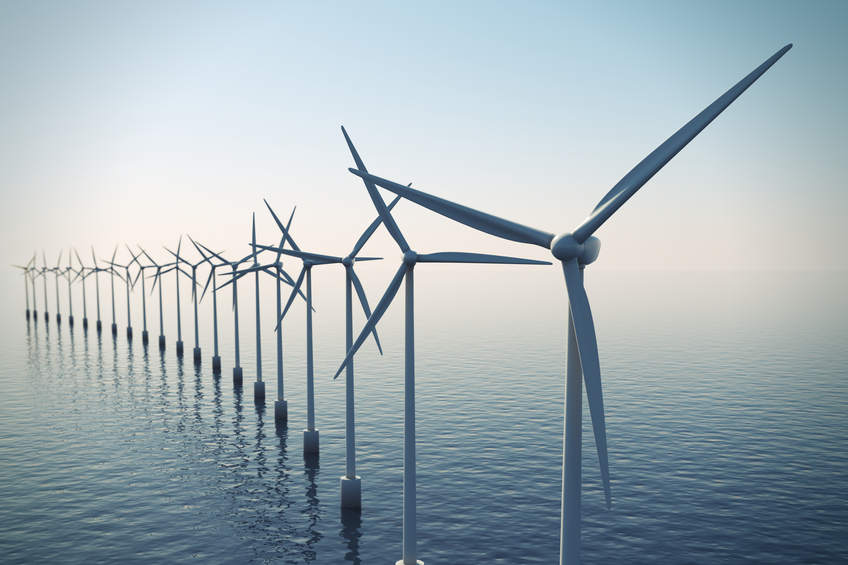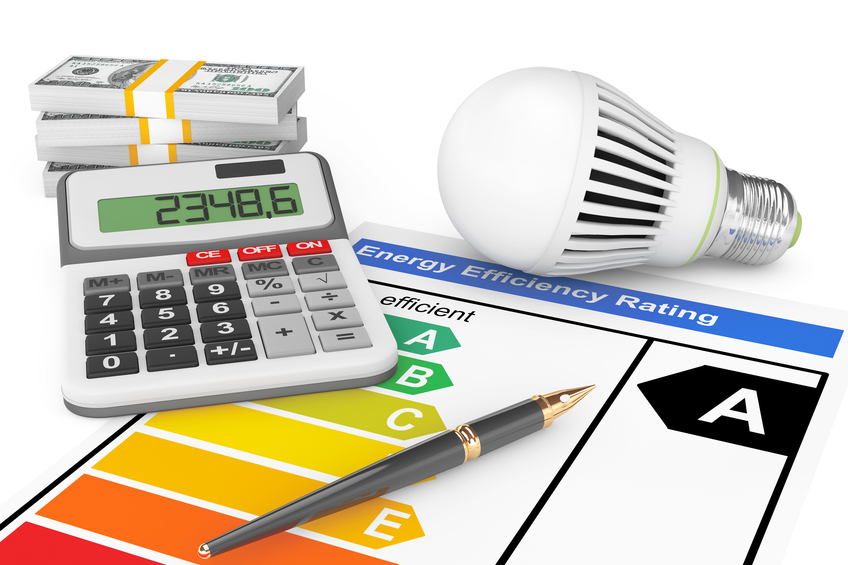Minnesota Energy Efficiency and Ethics 24 PDH Discount Package 1
Courses in this Package
Wind Turbine Technology (R04-009)
Water Efficiency Management Guide for Mechanical Systems (M02-055)
Wireless Occupancy Sensors for Lighting Controls (E01-012)
Advancing Sustainable Materials Management (C01-021)
Advancing Systems and Technologies to Produce Cleaner Fuels (P03-003)
Estimating the Environmental Effects of Green Roofs (C02-075)
Home Energy Savings: A Practical Approach (M09-001)
Engineering Ethics for Minnesota Professional Engineers (MN2-002)

This online engineering PDH course provides a brief overview of wind turbine technology and its associated components, discusses the financial considerations and the technological improvements that would be required to increase the reliance on wind energy in the future.
Current turbine technology has enabled wind energy to become a viable power source in today’s energy market. Advancements in turbine technology that have the potential to increase wind energy’s presence are currently being explored through areas of study including reducing capital costs, increasing capacity factors, and mitigating risk through enhanced system reliability.
This 4 PDH online course is intended for renewable, sustainability, mechanical, electrical, and industrial engineers, as well as other technical personnel who are interested in gaining a basic understanding of wind turbine technology.
This PE continuing education course is intended to provide you with the following specific knowledge and skills:
- Familiarizing with the basic configuration of the modern wind turbine
- Knowing the options in improving wind turbine technology
- Understanding the technical and financial risks involved in wind technology
- Familiarizing with offshore wind technology
- Learning about distributed wind technology (DWT) and their applications
Upon successful completion of the quiz, print your Certificate of Completion instantly. (Note: if you are paying by check or money order, you will be able to print it after we receive your payment.) For your convenience, we will also email it to you. Please note that you can log in to your account at any time to access and print your Certificate of Completion.

This online engineering PDH course presents guidelines on how to reduce mechanical system water use in residential buildings. Mechanical systems are frequently utilized to provide heating and cooling for residential properties. They typically fall into two categories: centralized and decentralized systems.
Centralized mechanical systems provide heating and cooling from a central location, such as a mechanical room or utility penthouse. These systems are more common in mid- and high-rise multifamily properties and can include cooling towers, boilers, and steam systems, each of which uses water as the heat transfer medium. As a result, the use of water for building heating and cooling can be significant and using sound management practices is a good opportunity for water savings.
Decentralized mechanical systems treat each unit of a multifamily property as its own space, as if each unit were a stand-alone single-family residence. These systems do not typically use process water, so they are not the focus of this water efficiency management guide.
This 2 PDH online course is intended for mechanical, environmental and civil engineers, as well as other technical personnel who are interested in learning more about reducing water use in mechanical systems.
This PE continuing education course is intended to provide you with the following specific knowledge and skills:
- Understanding the basics principles behind single-pass cooling, cooling towers and boiler/steam systems
- Understanding mechanical system water use
- Familiarizing with the maintenance and best management practices
- Knowing the mechanical systems retrofit and replacement options
- Familiarizing with the water savings calculations and assumptions
Upon successful completion of the quiz, print your Certificate of Completion instantly. (Note: if you are paying by check or money order, you will be able to print it after we receive your payment.) For your convenience, we will also email it to you. Please note that you can log in to your account at any time to access and print your Certificate of Completion.

This online engineering PDH course provides basic information on wireless occupancy for lighting controls.
Lighting use constitutes about 20% of the total energy consumption in commercial buildings. Adding lighting controls is a simple retrofit option than can save on energy costs while helping to meet agency and federal energy savings mandates. Some energy codes and federal standards require the use of lighting controls.
Studies have shown that adding lighting controls can reduce lighting energy use 10% to 90% or more depending on the use of the space in which the sensors are installed. One study conducted on a university campus found that installing wired occupancy sensors to control lighting in more than 200 rooms in 10 buildings provided an annual cost savings of about $14,000 with a simple payback of 4.2 years.
This 1 PDH online course is applicable to electrical engineers and others interested in gaining knowledge about wireless occupancy for lighting controls for a better sustainable design.
This PE continuing education course is intended to provide you with the following specific knowledge and skills:
- Familiarizing with the different types of occupancy sensors and their characteristics including microphonic, ultrasonic, bluetooth, video image and dual technology
- Gaining a general overview of the codes and standards of lighting controls
- Learning about the types of light source to use for occupancy sensors
- Understanding how wireless sensors are powered and the best practices in using wireless sensors
- Learning about the cost considerations for wire and wireless sensors
Upon successful completion of the quiz, print your Certificate of Completion instantly. (Note: if you are paying by check or money order, you will be able to print it after we receive your payment.) For your convenience, we will also email it to you. Please note that you can log in to your account at any time to access and print your Certificate of Completion.

This online engineering PDH course presents the facts and statistics about the generation and disposition of municipal solid waste (MSW) over time in the United States. It examines the disposing of waste in landfills, recycling, composting, and combustion with energy recovery.
Approximately 262 million tons of MSW was generated in the United States in 2015. Understanding how waste is generated and disposed of is important for managing scarce materials.
This report analyzes MSW trends in generation and management, materials and products, and economic indicators affecting MSW. It also includes a section on the generation of construction and demolition (C&D) debris, which is not a part of MSW, but comprises a significant portion of the non-hazardous solid waste stream.
This 1 PDH online course is applicable to civil, environmental and sustainability engineers and other technical personnel who are interested in gaining a basic understanding of waste management on the individual and household level.
This PE continuing education course is intended to provide you with the following specific knowledge and skills:
- Knowing where MSW comes from and how it is disposed of
- Understanding how to manage materials in order to maximize economic efficiency
- Learning when recycling, composting, and combusting with energy recovery should be used
- Familiarizing with the Sustainable Materials Management (SMM) process
Upon successful completion of the quiz, print your Certificate of Completion instantly. (Note: if you are paying by check or money order, you will be able to print it after we receive your payment.) For your convenience, we will also email it to you. Please note that you can log in to your account at any time to access and print your Certificate of Completion.

This online engineering PDH course provides information on advancements made in systems and technologies related to oil and natural gas development to produce cleaner fuels. It pays special attention to advancements aimed at reducing the environmental impact associated with the production of oil and natural gas. It also discusses the safety conditions for those involved in the development process.
Fossil fuel resources account for 82% of total U.S. primary energy use because they are abundant, have a relatively low cost of production, and have a high energy density—enabling easy transport and storage. The infrastructure built over decades to supply fossil fuels is the world’s largest enterprise with the largest market capitalization. Of fossil fuels, oil and natural gas make up 63% of energy usage. Across the energy economy, the source and mix of fuels used across these sectors is changing, particularly the rapid increase in natural gas production from unconventional resources for electricity generation and the rapid increase in domestic production of shale oil. The United States will, for the foreseeable future, continue to rely heavily upon oil and natural gas to support its economy, national security, and energy security.
This 3 PDH online course is applicable to petroleum, chemical, mechanical and sustainability engineers and other technical personnel who are interested in learning more about the trends in advancing oil and gas development systems and technologies.
This PE continuing education course is intended to provide you with the following specific knowledge and skills:
- Understanding the Oil and Gas industry in the Energy Economy of the United States
- Familiarizing with the latest technological advancements in Oil and Gas
- Learning about the emerging research opportunities and the four themes to address R&D challenges
- Learning the about the Oil and Gas challenges through specific technology assessments
- Understanding the risks associated with the various aspects of oil and natural gas development
- Learning from past oil and natural gas development mistakes and disasters to ensure they are not repeated
Upon successful completion of the quiz, print your Certificate of Completion instantly. (Note: if you are paying by check or money order, you will be able to print it after we receive your payment.) For your convenience, we will also email it to you. Please note that you can log in to your account at any time to access and print your Certificate of Completion.

This online engineering PDH course provides insight on how to estimate the positive environmental effects of green roof installations in cities. This is accomplished by providing a brief introduction to the basic concepts and definitions relating to urban environmental pollution, followed by a case study of the Kansas City metropolitan area.
A green roof—also called a vegetated roof or eco-roof—is a roof with soil and plants placed on top of a conventional roof. Green roofs are growing in popularity, as they have proven to be a cost-effective strategy for creating more livable and sustainable cities. Integrating nature-based solutions like green roofs into the urban landscape has several benefits to the environment, public health, and society.
This 2 PDH online course is applicable to architects, sustainability, environmental, and building engineers, as well as other technical personnel interested in learning more about the numerous benefits of green roof installations in urban areas.
This PE continuing education course is intended to provide you with the following specific knowledge and skills:
- Learning how green roofs benefit the environment and public health
- Familiarizing with green roofs using as a case study (Kansas City, Missouri)
- Understanding the analytical process, methodology, and tools used in estimating the benefits of green roof installations
- Understanding the limitations of the model and results of the presented case study
Upon successful completion of the quiz, print your Certificate of Completion instantly. (Note: if you are paying by check or money order, you will be able to print it after we receive your payment.) For your convenience, we will also email it to you. Please note that you can log in to your account at any time to access and print your Certificate of Completion.

This online engineering PDH course provides information on a wide variety of energy-related topics, ranging from simple weatherization, insulation, heating and cooling system improvements in homes, to installing and maintaining efficient water heaters, home appliances and solar panels.
Every year, a typical family in the United States spends around half of its home energy budget on heating and cooling. Unfortunately, many of those dollars are often wasted, because conditioned air escapes through leaky ceilings, walls and foundations, or flows through inadequately insulated attics, pipes, exterior walls and basements. In addition, many appliances, heating systems and air conditioners aren’t properly maintained, are old and inefficient, compared to models being sold today.
By properly maintaining your existing heating and cooling equipment (or replacing aging units with high-efficiency models), addressing weatherization and insulation issues at your house and getting into the habit of using energy efficiently all the time, you can save 10 to 30 percent (or more) on your utility bills every year. You will also help reduce pollution at utility plants that use fossil fuels to generate electricity.
This 9 PDH online course is applicable to electrical and mechanical engineers as well as energy specialists who are interested in learning more about home energy-saving considerations and the collection of systems that work together to achieve peak energy savings and to increase a home’s overall comfort.
This PE continuing education course is intended to provide you with the following specific knowledge and skills:
- Familiarizing with the major sources of air leaks and energy use in a typical home
- Learning about different sealing and insulating materials, their main characteristics and applications
- Understanding the energy saving considerations for heating and cooling systems
- Learning about a set of energy-related units, ratios and terminologies
- Learning about water heating systems and the different approaches to lowering water-heating costs
- Familiarizing with energy-efficient tips and practices for major home appliances
- Familiarizing with the building blocks of solar PV systems
- Gaining a general overview of contracts, installation, maintenance and monitoring of solar energy systems
Upon successful completion of the quiz, print your Certificate of Completion instantly. (Note: if you are paying by check or money order, you will be able to print it after we receive your payment.) For your convenience, we will also email it to you. Please note that you can log in to your account at any time to access and print your Certificate of Completion.

This online engineering PDH course presents the laws and rules of ethics and professional responsibility governing the practice of engineering in the State of Minnesota. Excerpts from Chapter 326 of the Minnesota Statutes and Chapter 1805 of the Minnesota Administrative Rules, which relate to the laws and rules of professional conduct are presented in this course.
Engineering ethics is (1) the study of moral issues and decisions confronting individuals and organizations involved in engineering and (2) the study of related questions about moral conduct, character, ideals and relationships of peoples and organizations involved in technological development (Martin and Schinzinger, Ethics in Engineering).
Since engineers are faced with frequent moral and ethical dilemmas while practicing their engineering profession, this course will provide you with moral and ethical guidance in your decision making process. Most importantly, it will provide you with insight on how to conduct, respect and protect your engineering practice with the utmost professionalism.
This 2 PDH online course is applicable to Professional Engineers licensed in the State of Minnesota and who are required to demonstrate continuing professional competency in engineering ethics as a condition of their license renewal. For each renewal period, every licensee must complete twenty four (24) professional development hours, at least two (2) of which must be relative to professional responsibility, conduct and ethics.
This PE continuing education engineering course is intended to provide you with the following specific knowledge and skills:
- Familiarizing with the laws and rules regulating the practice of engineering in the State of Minnesota
- Understanding the role of the Minnesota Board and its disciplinary authority
- Learning about engineering ethics, the laws and rules of professional conduct and responsibility
- Gaining an overview of disciplinary case studies along a range of violations and their corresponding penalties
Upon successful completion of the quiz, print your Certificate of Completion instantly. (Note: if you are paying by check or money order, you will be able to print it after we receive your payment.) For your convenience, we will also email it to you. Please note that you can log in to your account at any time to access and print your Certificate of Completion.